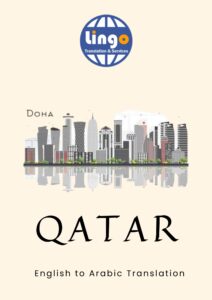Which Languages Should I Localize My Website Into?
Choosing the suitable languages to localize your website can take time and effort. With over 7,000 languages spoken worldwide, it is a strategic business decision that requires careful thought and extensive research. Localization is not merely a translation service; it’s about adapting your web content culturally and linguistically to suit the targeted market.
This article will guide you through deciding which languages to consider for localizing your website based on key factors, such as your target audience, market share, industry trends, and more.
Understanding Website Localization
Website localization goes beyond simple translation. It is a more comprehensive process that includes not only the translation of text but also the adaptation of graphics, scripting, formatting, and other web elements to cater to the target region’s cultural, social, and legal norms. An effective localization strategy should be integrated into your marketing plan immediately.
When your website is correctly localized, visitors from various parts of the world can explore your site with the same comprehension as local users. They can understand the text, follow links, complete transactions, and navigate your site easily, all in their native language. This enhances user experience and boosts the brand’s trust and credibility among the international audience.
Determining Your Target Market
The first step in deciding which languages to localize your website into is determining your target market. In which countries do you envision your product or service being successful? Where does your competition operate? Are there any market gaps you could fill? Answering these questions requires thorough research and data analysis.
The more accurate and focused your market targeting is, your localization efforts will be more effective. If your product is primarily for English-speaking clientele, then it may make sense to localize into UK English, US English, Australian English, etc. However, consider other popular global languages if you’re targeting an international audience.
Analyzing Potential Language Markets
Once you’ve established your target market, the next step is to analyze the potential language markets. This involves looking at the languages spoken in your target market, the number of internet users who speak those languages, and the current internet penetration rate in those markets.
For example, according to Internet World Stats, as of 2021, the top ten online languages are English, Chinese, Spanish, Arabic, Portuguese, Indonesian/Malay, French, Japanese, Russian, and German in that order. Although English still dominates the internet, there has been a surge in non-English users in recent years, especially in rapidly developing regions like Asia, Africa, and the Middle East.
Remember that the total number of speakers is not the only criterion. Demand in the target market is another critical factor.
Market Share and Industry Trends
Analyzing your industry niche’s popularity and growth rate in various linguistic markets can give you valuable insights into which languages to prioritize. You can use international market reports, industry studies, and consumer trend reports to understand where your product or service might thrive.
Look at the major players in your industry. What languages have they localized into, and why? Please speak with a reputable translation service company; they can lend their expertise to trends that shape your industry’s landscape and provide insight into successful localization strategies.
Local Laws and Regulations
One must recognize the local laws and regulations when considering expanding to foreign markets. These vary from country to country and may involve rules about data protection, privacy, ecommerce, and language usage. Certain countries, like Canada and Belgium, have laws requiring businesses to provide information in multiple local languages. Skipping this vital aspect could result in legal challenges and damage your brand’s reputation.
Convenience and Customer Satisfaction
Localizing your website into your customers’ native language increases their comfort level and trust in your brand. Information and instructions in a language users understand increase their likelihood of purchasing a product.
When deciding which languages to localize into, consider the convenience and satisfaction of your potential customers. Employing a professional translation service can ensure your content is accurately translated and localized, increasing the likelihood of customer conversion.
Conclusion
Deciding which languages to localize your website is a complex process that depends on various factors, including your target audience, the potential language markets, and industry trends. Employing a professional translation service can help you make informed decisions and ensure that your website accurately represents your brand to your target markets.
Remember, there is no one-size-fits-all strategy for localization. The choice depends on your business objectives, target audience, and resources. Regardless of the languages you choose, the fundamental goal is effectively communicating with your potential customers in a language they understand and prefer, fostering trust and establishing a connection with them.
With careful research, planning, and strategic execution, you can localize your website to reach a broader global audience, increase your market share, and improve your company’s bottom line.





